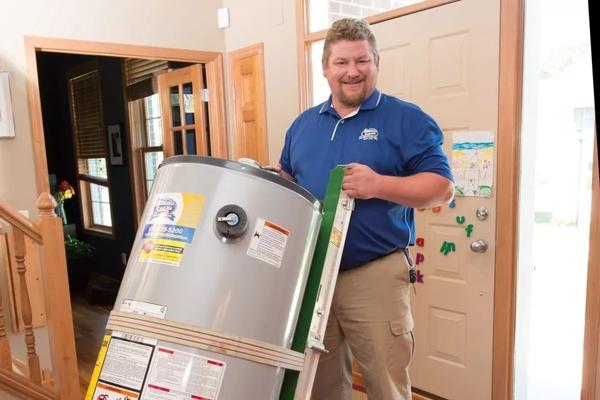Choosing the Right Water Heater for Your MN Home: Tank vs. Tankless

Are you contemplating whether to select a tank or tankless water heater for your Minnesota home as you consider replacing your current unit? The choice ultimately hinges on your personal preferences, water usage habits, and budget considerations. Still, it's common for homeowners to weigh the merits of traditional tank-style water heaters against the modern tankless options.
If cost-efficiency and dependability are your top priorities and your existing tank water heater has reliably met your needs with minimal repairs, a tank water heater might be the way to go. Conversely, if you value a continuous supply of hot water and a compact design that saves space, a tankless water heater could be your best bet.
To help you make an informed decision, we'll explore the distinctions between tank and tankless water heaters by examining:
The Pros and Cons of Tank Water Heaters
Advantages of Tank Water Heaters

In Minnesota and across the United States, the tank-style water heater is the standard choice for many households. This system heats and stores water in a large tank, ensuring a constant supply of hot water is available on demand. One of the key advantages of opting for a tank-style water heater is its affordability, with installation costs typically ranging from $1,600 to $4,500. In contrast, tankless water heaters, which heat water on demand and do not store it, are more expensive to install, generally falling between $5,000 and $10,000.
Tank water heaters are particularly well-suited for homes that rely entirely on electricity, making them a versatile option for properties without natural gas. A hybrid heat pump water heater might be worth considering for those looking to improve their electric water heating efficiency. Furthermore, maintenance for tank water heaters is generally straightforward and more cost-effective than the maintenance required for tankless units. Although both water heaters need regular upkeep, tank-style heaters typically offer a simpler and less expensive maintenance process.
Disadvantages of Tank Water Heaters
One of the most often discussed disadvantages of tank water heaters is their limited hot water capacity. Traditional water heaters can exhaust their hot water supply, necessitating a reheating process (which may take time). They're also less energy efficient than tankless units. Constantly maintaining water warmth within the tank leads to higher energy consumption than tankless water heaters.
Additionally, these water heaters can be bulky, so they require ample space for installation and have a shorter lifespan. Traditional water heaters typically last 10 to 15 years, whereas tankless versions can have a useful service life of up to 25 years.
The Pros and Cons of Tankless Water Heaters
Advantages of Tankless Water Heaters

One of the most significant benefits of tankless water heaters is their size. Tankless water heaters don't feature a hot water storage tank. Instead, they heat water only when required, earning them the monikers "on-demand" or "instantaneous" water heaters. Because of this, they offer a nearly unlimited hot water supply, providing hot water as needed, ensuring a constant supply. However, their capacity is limited by flow rate. Tankless water heaters are more energy efficient than tank heaters. The absence of a tank eliminates energy wastage from maintaining warmth throughout the day. What's more, their compact design allows for installation in tighter spaces.
The Disadvantages of Tankless Water Heaters
The most significant downside of tankless water heaters is their high initial purchase and installation cost, which can be prohibitively expensive for many consumers. Despite their greater energy efficiency and potential savings over time, the steep initial expense may deter buyers, as it can take years to recover the investment through lower energy bills. Additionally, tankless water heaters require more frequent maintenance; manufacturers often advise servicing these units every 6 to 12 months to uphold the warranty, adding to their overall cost of ownership.
How to Choose the Right Water Heater for Your Needs
When selecting between a tank or tankless water heater for your home, consider factors like hot water demand, upfront cost, and space availability. Tank heaters are ideal for budget-conscious individuals with consistent hot water needs, while tankless heaters suit those seeking energy efficiency and space-saving benefits. Assess your priorities to make the best choice.
Ready to explore replacement water heater costs?
Reach out to us online for pricing details for tank water heater systems and tankless water heating systems. Our plumbing services cover the entire Minneapolis-St. Paul area, and with over a century of service under our belts, MSP Plumbing Heating Air is committed to 100% customer satisfaction and is eager to service your needs.
